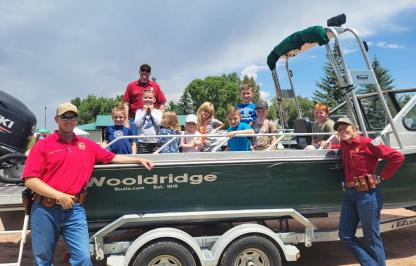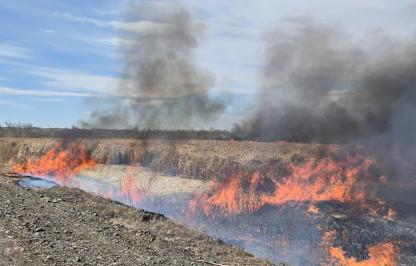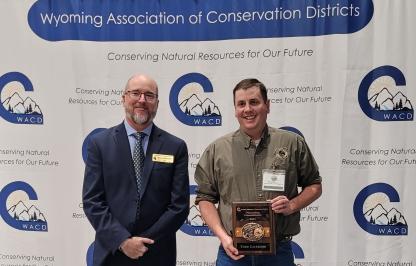Game and Fish Commission charts strategy to conserve ungulate migration corridors
The Wyoming Game and Fish Department spent several months working with the public and stakeholders to develop a strategy for conserving ungulate migration corridors. The culmination of that inclusive process was a vote by the Wyoming Game and Fish Commission to adopt the strategy. Migration corridors are considered vital under Commission policy and the vote adds key components of corridors, bottlenecks and stop-over areas, to this classification.
The migration corridor strategy includes proactive measures to conserve migration routes by examining potential threats and having Game and Fish and partners review and comment on projects on a case-by-case basis.
“We really appreciate the time and resources that people and organizations across Wyoming put into helping create this strategy,” said Scott Talbott, Director of the Wyoming Game and Fish Department. “The strategy will help us identify the ways we can conserve migration corridors, which are vital for conserving mule deer, elk and pronghorn.”
The migration corridors of ungulates like mule deer, pronghorn and elk in Wyoming are some of the longest in North America. Over the past several years, the Wyoming Game and Fish Department and other researchers have continued studying the migration of big game animals and, with its Commission and partners, Game and Fish has highlighted the need to conserve the documented routes.
At the meeting this week the Commission also established the policy of setting aside a six month reserve in its operating fund.
“This is a good business practice and ensures we are stewards of the funds that come from sportsmen and sportswomen,” said Commission President Charles Price. “Past conservative budgeting combined with increased revenue from the sale of guns, ammo and fishing licenses created the opportunity for us to make important investments for wildlife and the public.”
The Commission directed the Department to further examine the costs and options for building a new facility in Laramie to safeguard fish health and do forensic work on wildlife related crimes. This would also be home to the regional office.
The Commission also asked for the development of options to invest in Wyoming’s wildlife:
The migration corridor strategy includes proactive measures to conserve migration routes by examining potential threats and having Game and Fish and partners review and comment on projects on a case-by-case basis.
“We really appreciate the time and resources that people and organizations across Wyoming put into helping create this strategy,” said Scott Talbott, Director of the Wyoming Game and Fish Department. “The strategy will help us identify the ways we can conserve migration corridors, which are vital for conserving mule deer, elk and pronghorn.”
The migration corridors of ungulates like mule deer, pronghorn and elk in Wyoming are some of the longest in North America. Over the past several years, the Wyoming Game and Fish Department and other researchers have continued studying the migration of big game animals and, with its Commission and partners, Game and Fish has highlighted the need to conserve the documented routes.
At the meeting this week the Commission also established the policy of setting aside a six month reserve in its operating fund.
“This is a good business practice and ensures we are stewards of the funds that come from sportsmen and sportswomen,” said Commission President Charles Price. “Past conservative budgeting combined with increased revenue from the sale of guns, ammo and fishing licenses created the opportunity for us to make important investments for wildlife and the public.”
The Commission directed the Department to further examine the costs and options for building a new facility in Laramie to safeguard fish health and do forensic work on wildlife related crimes. This would also be home to the regional office.
The Commission also asked for the development of options to invest in Wyoming’s wildlife:
- Address threats to wildlife from diseases including chronic wasting disease.
- Shore up infrastructure, such as at the Cody regional office.
- Create more opportunities for education and hunter and angler recruitment, including potential upgrades at the Whiskey Mountain Conservation Camp near Dubois.
- Conserve key habitat, including migration corridors.
Wyoming Game and Fish (307) 777-4600



